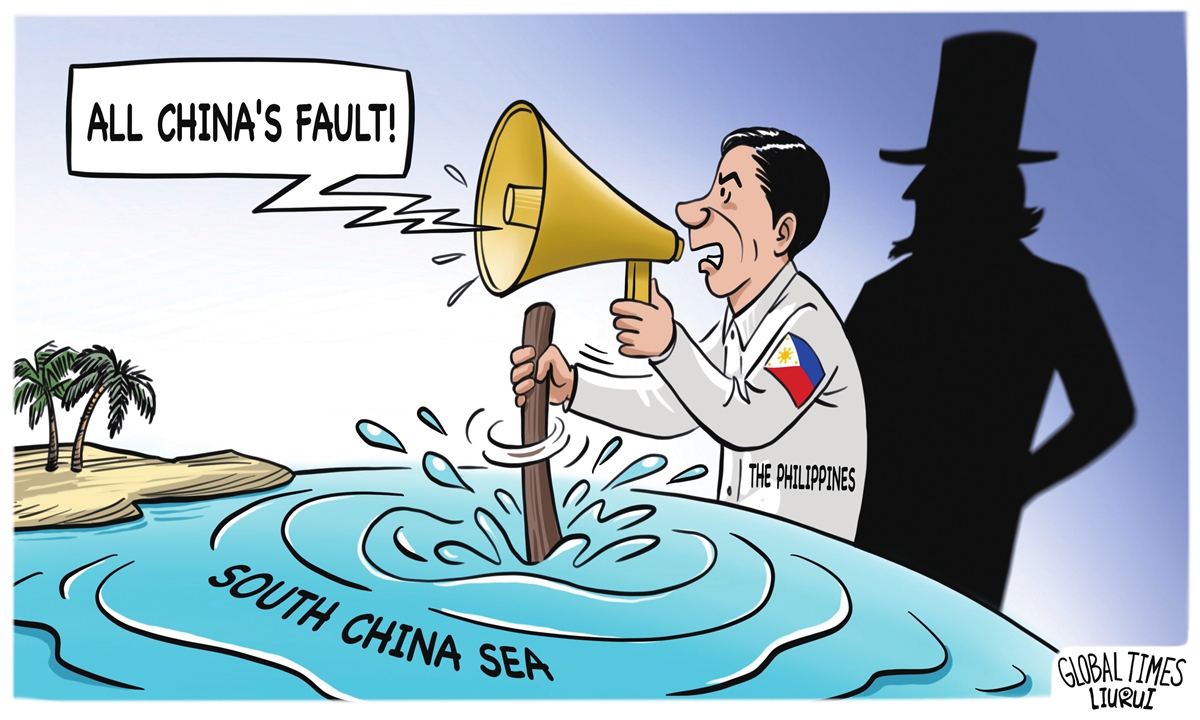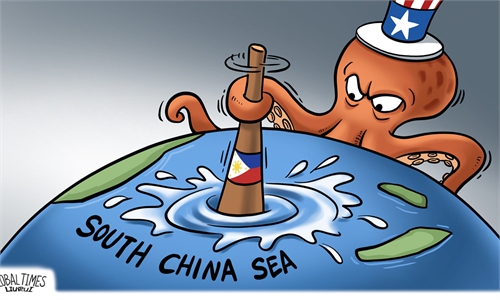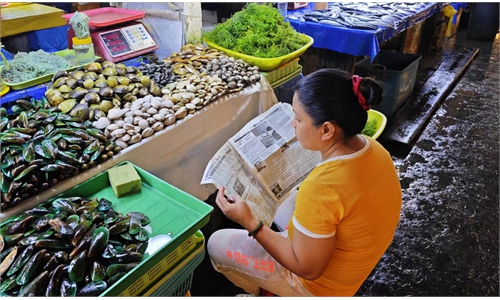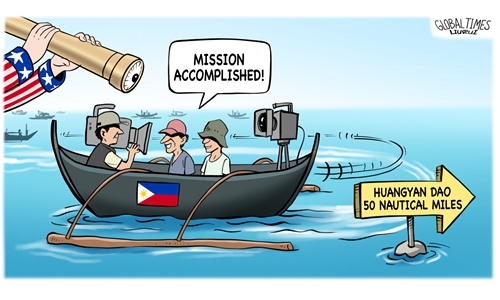Manila's protest against China's fishing moratorium is not responsible toward its fishermen: Global Times editorial

Illustration: Liu Rui/GT
On May 27, the Philippine Department of Foreign Affairs protested China's "unilateral" implementation of a four-month fishing moratorium in the South China Sea, claiming that this move "escalates tensions" in the region and calling on China to "cease and desist" from "illegal actions" that "violate the Philippines' sovereignty and sovereign rights." This is an unreasonable accusation. China's fishing ban significantly contributes to the sustainable development of fisheries in the South China Sea, benefiting the people of all coastal countries in the region. It is Manila's actions that are extremely irresponsible toward its own fishermen.
China's implementation of the summer fishing moratorium in the South China Sea is conducted within areas under Chinese jurisdiction. The Philippines' claim that the fishing moratorium covers "the Philippines' exclusive economic zone" is a unilateral assertion that China does not recognize. The Philippines' interference in areas under Chinese jurisdiction amounts to meddling in China's territorial sovereignty and rights. Furthermore, the fishing moratorium is a standard measure for the sustainable protection of marine biological resources and reflects the fulfillment of international legal obligations, including those under the United Nations Convention on the Law of the Sea (UNCLOS). The Philippines' stance contravenes principles of ecological and environmental protection and lacks support both scientifically and under international law.
The egregious aspect of the Philippines' actions is that it links China's fishing ban system with the interests of Filipino fishermen, confusing the public. Manila's demands not only violate China's territorial sovereignty and UNCLOS, but also harm the long-term interests of its own fishermen, disregarding the survival environment of future generations. This is not merely playing the victim; it is plainly unreasonable. The Philippine government, under the guise of fighting for fishermen's rights, is actually shirking its responsibility to them. Unrestricted fishing is ultimately unsustainable, and encouraging such behavior is akin to encouraging fishermen to drink poison to quench their thirst.
Manila has recently added a new act to its provocations against China, using the false claim that "China is destroying the South China Sea environment" to cover up its own continuous damage to the South China Sea's ecological environment. In February this year, the Philippines claimed that Chinese fishermen were using cyanide at Huangyan Dao, a claim that China refuted. In fact, the Philippines has been using cyanide for fishing since 1962, and approximately 65 tons of cyanide are sprayed onto coral reefs each year, severely damaging the marine ecology of the South China Sea. Furthermore, on May 20, the Philippines, under the pretext of environmental protection, demanded that China open Huangyan Dao to "international supervision." However, images obtained from the Chinese Coast Guard by the Global Times show that the Philippines' illegally "grounded" military ship is severely rusted, with many pollutants directly flowing into the sea, continuously damaging the marine ecology near the Ren'ai Jiao.
The Philippines has not yet established a mechanized marine protection measure similar to a fishing ban. The fisheries resources in the South China Sea are showing a trend of continuous depletion due to inadequate maintenance and management, resulting in an imbalance in the ecological environment of the South China Sea. The Philippine government cannot escape blame for this.
In China, the South China Sea summer fishing moratorium system officially implemented since 1999 has been in place for 25 years. It not only fully reflects the Chinese government's attitude and determination in protecting marine fishery resources, but also establishes a responsible image of a great power in the international community in protecting marine ecological environment and promoting sustainable development of fisheries.
Currently, 30 percent of the GDP of ASEAN countries comes from the ocean, and about 625 million people depend on the ocean for their livelihoods. On May 18, the Forum on China-ASEAN Cooperation in the Blue Economy was held in Hainan province, demonstrating the consensus between China and ASEAN countries on strengthening cooperation in the blue economy and promoting blue economy integration, which is one of the important directions for creating regional economic growth points. China and the Philippines can cooperate on fisheries within the framework of the China-ASEAN blue economy integration vision in a legal, scientific, and mutually beneficial manner, which is the policy option that truly considers the interests of Filipino fishermen.
Of course, the development of such cooperation depends on the formation of a good political atmosphere between countries. For example, during the Duterte era, China and the Philippines set aside disputes and carried out cooperation in various fields, including the fisheries sector. From 2017 to 2019, in response to the training and breeding needs of Filipino fishermen, China donated 100,000 high-quality fingerlings to the Philippines for three consecutive years. Under the promotion of the Belt and Road Initiative, China has provided training for Filipino fisheries technical personnel and organized fisheries companies to invest in the Philippines. The benefits they have brought to Filipino fishermen are incomparable, dwarfing the recent "Huangyan Dao farce."
Currently, Filipino fishermen are often pushed by the government to the front line of provocation in the South China Sea, even taking on the "political task" of attacking Chinese coast guard ships. This is not only a shameless hostage-taking of their own fishermen, but also an irrational consumption of Chinese patience and goodwill. Manila has no reason to blame China on the issue of treating fishermen well. What needs to be adjusted is not only its fishing policy but also its severely misguided anti-China policies.
The protection of fisheries resources in the South China Sea is a shared responsibility of coastal countries, which requires these countries to establish regional cooperation mechanisms to work together. Therefore, the political atmosphere in the South China Sea not only directly affects the effectiveness of ecological protection, but also the livelihoods of coastal fishermen. It is hoped that the Philippines can make wise decisions that are in the long-term interests of its fishermen, rather than continuing the farce of protesting against China's fishing ban.



